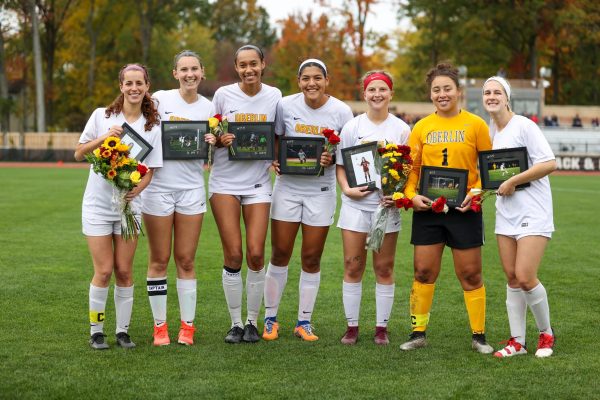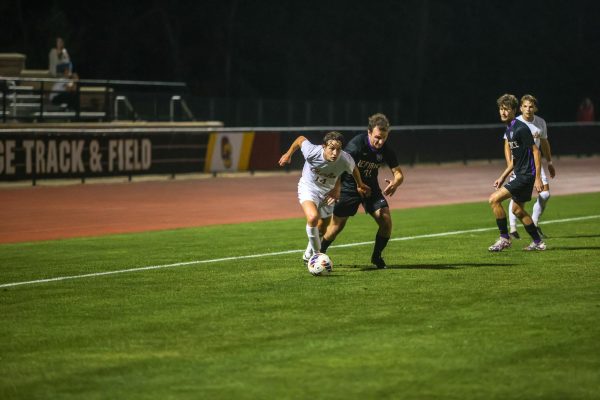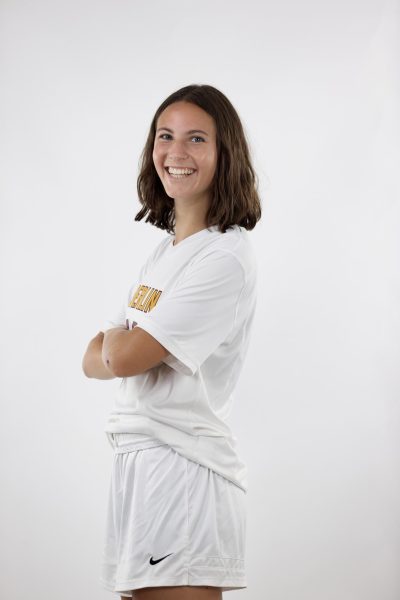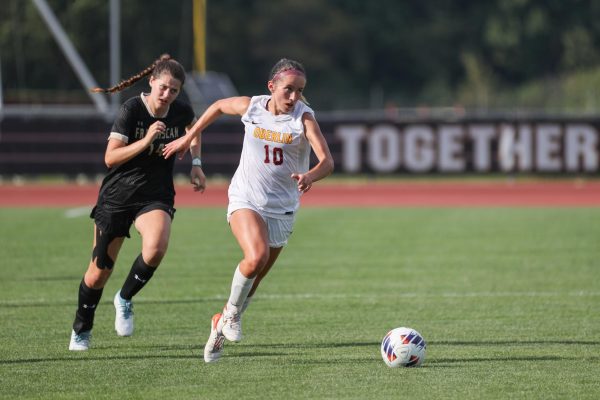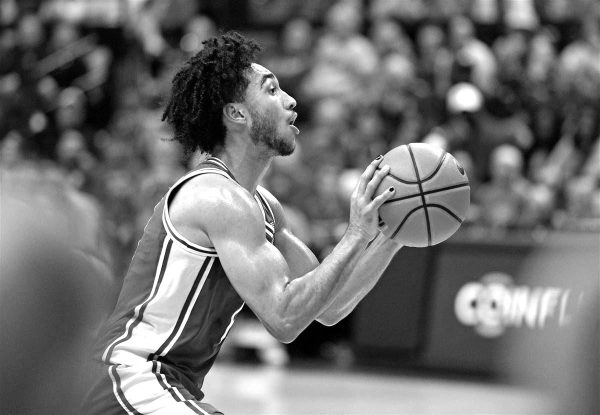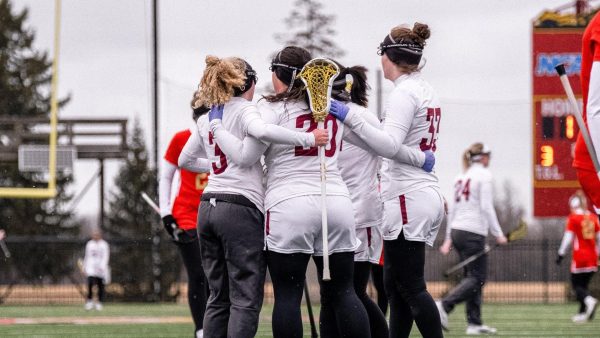Women’s Soccer Starts New Preseason Tradition: Race and LGBTQ+ Workshops
This past summer, the Oberlin varsity women’s soccer team looked to foster an inclusive space for all members, new and old, through workshops addressing LGBTQ+, gender, and racial identities. Rather than solely adhering to the preseason strategies that have been implemented for many years, the team started this new tradition. Each workshop was organized and headed by team members of those respective communities.
“A major goal of [the workshops] was to begin normalizing these kinds of conversations in team spaces and help our teammates realize that they have a very tangible connection to [these] issue[s],” said College third-year and workshop facilitator Louise Metz.
The workshops were conducted through panels comprised of team members who answered questions and started in-depth discussions. The central idea was to work on team bonding. Workshop leaders were hoping to facilitate a strong chemistry that would help the student-athletes work together on the field and build a close-knit community off of it.
“Most of our goals are [on the field], so team bonding is key to achieving any of those goals,” College second-year Belle Smith said. “Team bonding is key to achieving any of those goals … being able to effectively communicate [with] teammates [requires] a large amount of trust and understanding.”
The need to address these topics as a team arose due to an article published in The Oberlin Review two years ago, in which a former women’s varsity soccer player described the challenges of racism that she faced as a person of color on a predominantly white team and sport.
“[My co-captain Jackie Brant] and I decided it would be great to have two workshops discussing race, gender and sexuality,” said College fourth-year and captain Cat Bent. “We both stepped back and let others, who [were informed] from personal experiences, lead the discussions on what is appropriate and what is not.”
Other topics that were addressed during the preseason panels arose from interactions in the locker room and other team-bonding events.
“As a primarily straight, cis[gendered] team, a lot of ‘locker room talk’ can be about straight sexual encounters, which can actively exclude people from the conversation,” Smith said. “So my question is: ‘How do we combat that exclusion?’”
The team discussed ways to be more inclusive, and ultimately concluded that LGBTQ+ experiences should not be shied away from in casual conversation.
“[Differences in] sexuality shouldn’t stop us from asking questions,” Smith said. “We are a very open team [as well], but there is [also] no pressure to disclose sexuality or force a teammate to come out to [us].”
Metz echoed Smith’s thoughts on making the space as comfortable as possible for all teammates, regardless of sexual orientation.
“I think previously there has been a pervasive heteronormative culture in athletics,” Metz said. “And while there hasn’t been open hostility, it’s been something we don’t directly address or think about consciously, which can [be] isolating [for] queer [members].”
For those who don’t identify as LGBTQ+, the workshops served as a way to provide them with guidance and ways to be as helpful of an ally as they can.
“One of my main goals going into this workshop was simply to learn how to be a better ally,” third-year defender Kiera Markham said. “It’s imperative we are aware of the privileges we have and how to best navigate these positions in order to not only be better teammates, but also better allies in general.”
The workshops also addressed situations when a player’s comfort could be compromised due to racial insensitivity. This reality sometimes manifests in the pregame warmup music, which occasionally feature controversial or racialized lyrics.
“Obviously white teammates should not sing along to racist language, and [should] also be thoughtful and respectful of our teammates of color asking to avoid certain artists or songs,” Smith said. “The discussion leaders did a fantastic job of highlighting microaggressions that happen that would prevent [such] conversations.”
College third-year Olivia Smith felt that having such honest and difficult conversations highlighted each individual’s ability to be authentic and vulnerable with one another.
“Every person is important and if we all respect each other, the team will be stronger,” Olivia said. “I am so proud of this team because we have talked about hard topics and everyone was extremely open and willing to tackle the subjects.”
The team hopes to implement these workshops for future years to come. To many on the team, this is imperative due to women’s soccer being a fall sport. The panels serve as an introduction for the first-years and helps set the tone for the season.
“The timing of the workshops provides a great introduction into the expectations and values of Oberlin [for first-years and newcomers],” Markham said. “These workshops are [also] a great way to remind all players that there is always room for growth, and we cannot expect issues surrounding race and LGBTQ+ rights to come through complacency.”
The team will be having a follow-up panel during Fall Break to facilitate further conversations on the subjects of race, gender, and sexuality.


